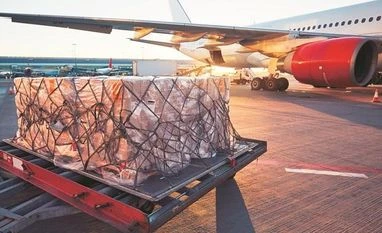The Rs 18,000-crore acquisition of Air India by Tata Group could weigh on listed aviation stocks, given the worries that a strong No. 2 player could intensify competitive pressures for the sector. The combined market share of Air India, AirAsia, and Vistara as of August is 26.7 per cent.
Analysts say the impact on SpiceJet stock could be more than that of market leader InterGlobe Aviation (IndiGo).
Says independent market expert Ambareesh Baliga, “Given that SpiceJet was a bidder and failed to make the cut will weigh on Street sentiment. Moreover, increased competitive pressures will have a bigger impact on the company since it is the weaker of the two listed playeRs in terms of market share and balance-sheet strength.”
While the near-term impact may not be severe, most analysts and industry experts believe that in the medium- to long-term, the sector could see a fight for market share brought on by the entry of multiple players .
Among the new entrants is the Jalan-Kalrock consortium (Jet Airways) expected to start domestic flights by the fiRs t quarter of 2022. Rakesh Jhunjhunwala-backed Akasa is also expected to start operations by April next year.
“Competition is expected to intensify. Companies should not get into a pricing war, given that the sector is coming out of turbulence, which, coupled with rising costs, could squeeze margins. The rush for market share and growth should not outweigh the airline's economics,” says Jagannarayan Padmanabhan, practice leader and director-transport and mobility, CRISIL Infrastructure Advisory.
Analysts highlight the outcome of the fight between Jet Airways and low-cost carrieRs had led to the shutdown of the former.
While competitive pressures in the sector will rise, Padmanabhan believes there are some positives the Tatas can benefit from. There is business opportunity in a full-service carrier. Vistara and Air India are the only playeRs serving this segment. Moreover, long-haul operations on international routes - once fully opened - can benefit the company since price competition on these routes is less pronounced. The key advantage would be the prime slots and landing rights across its global and domestic destinations.
Further, while Air India has been posting losses, not all its subsidiaries are making losses. The company’s Kochi-headquartered low-cost subsidiary Air India Express (AIE) has been profitable.
While 2020-21 (FY21) has been an exception for the sector, AIE has been reporting net profits each year for the past five yeaRs ended 2019-20 (FY20). Even as its parent reported a loss of Rs 8,000 crore each in 2018-19 (FY19) and FY20, AIE posted a net profit of Rs 412 crore in FY20 and Rs 161 crore in FY19.
According to the consolidated financial statements of Air India, AIE should have achieved positive networth towards the close of FY21, but for the dramatic downturn in air travel attributable to the Covid-19 pandemic.
Despite the advantages, there are several challenges for the Tatas' airline ventures in the country. Given the multiple supplieRs and configurations (Boeing, Airbus, ATRs ) across Air India’s 141 aircraft and those of Vistara and AirAsia and presence in full service, as well as low-cost models, the success of the combination will depend upon the company’s ability to differentiate itself, adopt rational pricing, and offer value to customeRs , says an aviation consultant.
Although the sharp reduction in debt ought to help save substantially on finance cost of Rs 4,100 crore, given the Rs 18,000-crore payment, the new owner will start with negative cash flow from Day One, while the airline will continue to need investment in operations/employee compensation.
While the company grapples with these challenges, whether it is a winner’s cuRs e or an acquisition that can be profitable will depend a lot upon the battle in the skies likely to unfold in 2022.
With competitive challenges ahead for the sector amid rising crude oil prices (40 per cent of costs) and normalcy yet to return, experts advise investoRs to keep away from listed aviation stocks.
Unlock 30+ premium stories daily hand-picked by our editors, across devices on browser and app.
Pick your 5 favourite companies, get a daily email with all news updates on them.
Full access to our intuitive epaper - clip, save, share articles from any device; newspaper archives from 2006.
Preferential invites to Business Standard events.
Curated newsletters on markets, personal finance, policy & politics, start-ups, technology, and more.
)